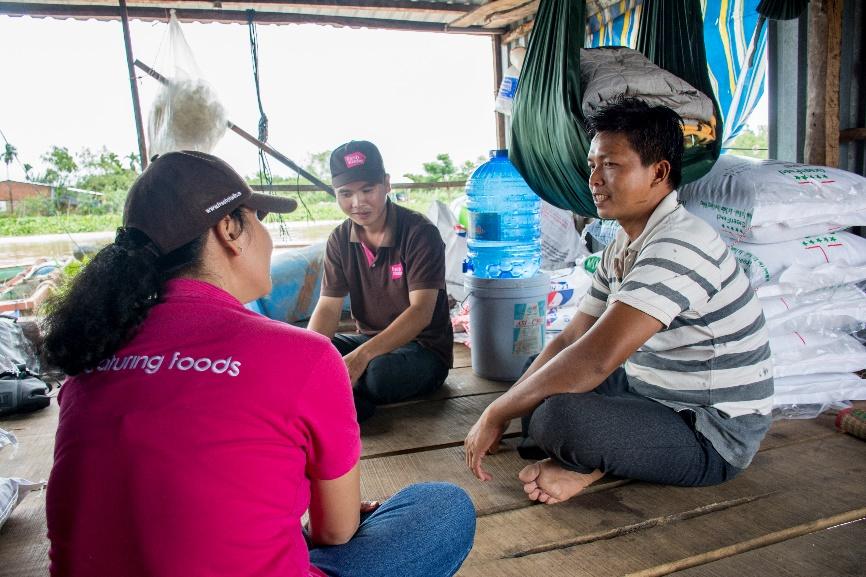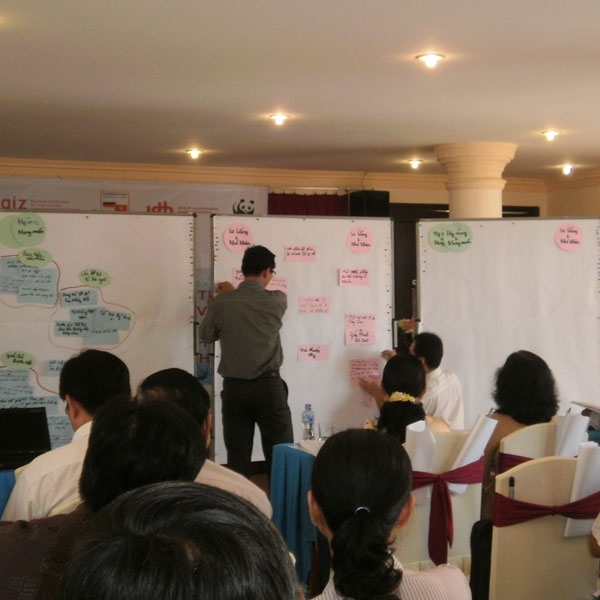Aquaculture is a vital component of the social and economic tissue for many provinces in the Mekong Delta. In the riverine provinces of Vinh Long and Dong Thap, where nearly half of the national Pangasius production takes place, sustainable expansion of aquaculture is constrained by several factors. Among those, the lack of appropriate extension approaches, limited technological know-how, and variable input quality are very often stressed by local farmers.
Through the PAP “Powering Aquaculture Progress” project launched in 2013, De Heus together with its implementing partners Fresh Studio, Can Tho University and Wageningen University have envisioned the development a state-of-the-art R&D facility serving as a nexus in the Mekong Delta where innovations could be developed, tested and adapted to local conditions in collaboration with local farmers.
After 4 years of development, 2017 marked a new milestone with the first training sessions held at the facility.
Sessions featured stakeholders from a variety of backgrounds, including more than 100 Pangasius and Tilapia farmers, members of the De Heus’ Research and Sales team, local and international industry experts, and academics from Can Tho University.
Because project partners knew that farmers often find training programs irrelevant to the practicalities of their work, Fresh Studio conducted a field survey of farm practices among nearly 50 farms throughout the rainy season to identify knowledge gaps and understand the difficulties experienced during production.
The results from this survey helped select relevant topics and support trainers prepare adapted materials and methodologies.
Using the research conducted in preparation for the program, sessions led by Dr. Mahmoud Haidar and Mr. Nguyen Van Khanh from the De Heus technical team shed light upon the power of data application, and its potential value added on farm efficiency.

Disease management, the topic most often requested by the farmers, was led by the renowned Dr. Tu Thanh Dung from Can Tho University. Dr. Dung emphasized the need for more thorough diagnostic procedures to treat the root causes of a disease. She also discouraged use of chemicals and pharmaceuticals as a primary treatment, describing the importance of preventive measures.
Before the workshop sessions, attendees were given to a tour of De Heus’ state-of- the-art R&D facility. This allowed the R&D team to demonstrate the systems and explain how their research could be applied in practice. Fresh studio was responsible for preparing the sessions and facilitating the workshops and Q&A sessions.

Farmers were actively involved in the training by raising many questions during presentations and hour-long exchange sessions. The open speaking platform and small number of attendees at each session (15-25 individuals) gave farmers the opportunity to discuss a wide range of topics. These included vaccination, antibiotic resistance, seed selection, water quality management, and even emerging diseases.
For our partner De Heus, the opening of the R&D farm and the development of its own internal training program are key steps toward proposing services that should help address a wider range of issues facing producers in the region. Through these efforts, De Heus is beginning to establish itself as a major player in the aquafeed market and contributor to the sustainable development of fish farming in Vietnam.





